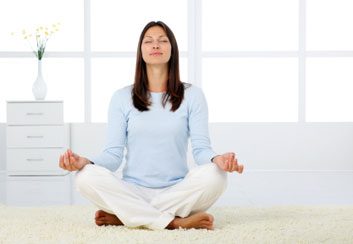
Most women don’t get enough sleep
Whether you stayed up late watching Jon Stewart or caring for your sick child, skimping on sleep leaves you feeling like a zombie the next day. Most of us need between seven and nine hours of sleep but if you’re like most women, you’re probably not getting enough; the average woman only clocks six hours and 41 minutes of sleep during the work week, according to the National Sleep Foundation in the U.S. Of course, regularly getting the sleep you need is a must. But for those days when you’re running on empty, here’s what you can do to re-energize.

1. Grab a nap
Carving out time for a 10- or 20-minute nap during the day will make you feel more alert and boost your mood, concentration and motor skills. If your schedule allows for it, find a cool quiet place to lie down to make it easier to fall asleep. Make sure you don’t nap for much longer than 20 minutes or you’ll wake up groggy. Take your nap early in the afternoon so you don’t have trouble falling asleep at bedtime.

2. Get outside
Spending time in natural light will improve alertness and your mood by boosting the feel-good brain chemical serotonin, according to Kimberley Cote, associate professor in the Sleep Research Laboratory at Brock University in St. Catharines, Ont. Spending some time outdoors will also help energize you for tomorrow since the more time you can spend in natural light, the better you’ll sleep at night.

3. Hit the gym
It may be the last thing you want to do when you’re already tired, but exercise is an excellent way to recharge, according to Beth Mansfield, a clinical exercise physiologist and registered dietitian in Ottawa. Any amount of physical activity-even a 10-minute walk-will increase blood flow to all parts of your body making you feel more energetic. Make sure you schedule your workout at least three hours before bedtime or it could lead to a poor night’s sleep.

4. Eat for energy
Even a modest amount of sleep deprivation can affect grehlin and leptin, the hormones responsible for keeping your metabolism working properly. This can make you feel hungrier and may lead to cravings for high-calorie, high-carb foods. But munching on those will only make you feel zonked again later when your blood sugar crashes. To eat for energy, start your day with a breakfast made up of healthy carbohydrates, such as oatmeal with one-half cup of fruit. Don’t skip meals during the day and make sure to have one to three carbohydrate-rich snacks, such as a small granola bar, a piece of fruit or a decaf latte.

5. Fill your cup
Lack of fluids can make you feel fatigued, so make sure you’re drinking about 1 mL of fluid for every calorie you eat, says Mansfield. That means if you consume a 2,000 calorie diet, you need about eight cups (2,000 mL) of fluids per day to stay hydrated and energized. Water isn’t your only option: you can also hydrate with milk, tea and wet foods, such as yogurt and soups. If you’ve got a coffee habit, drinking caffeine will temporarily make you more alert by blocking sleep-inducing chemicals in the brain. Just be sure to limit your intake to three 8oz. (250 mg) of caffeine per day to ensure that your coffee habit won’t make it hard to fall asleep.

6. Book a medical appointment
Certain medical conditions, such as iron- deficiency anemia and hypothyroidism can make you feel more fatigued. If you generally get enough sleep but you’re still feeling sluggish most days, see your doctor for blood tests to find out if you have a medical condition that’s affecting your energy levels-you may need an iron supplement or thyroid medication.

7. Do a mini-meditation
Meditating can re-energize you by relaxing your mind and body, says Toronto mind-body therapist Louise Gabrielle. In the middle of the day, spend five minutes doing a conscious relaxation exercise: lie down on the floor with your legs on a wall, your arms at your sides and your head on a pillow (keep your buttocks close to the wall to avoid knee strain). Focus your mind’s attention on each body part, inviting your whole body to relax. Another option is lying on the ground with your calves and feet up on the seat of a chair. “When your legs are raised up, it’s very good for regenerating the body,” Gabrielle advises. If you like, add in some gentle breathing, inhaling slowly and fully.
Related:
• 15 ways to stop worrying and sleep better
• Natural home remedies: Fatigue
• 5 steps to a perfect night’s sleep
